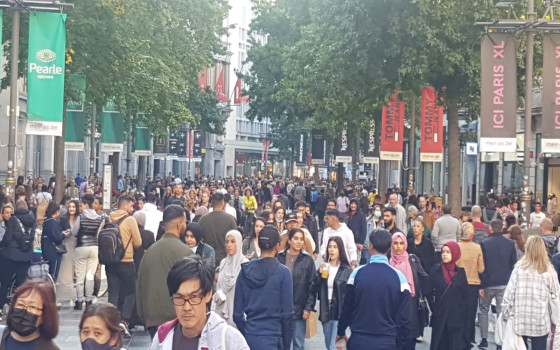
Feelings of discrimination among young people in EU countries are evident in their search for housing, interactions with public services, cafes, shops, sports facilities, and education.

- Europe and Arabs
- Tuesday , 29 July 2025 10:49 AM GMT
Brussels: Europe and the Arabs
5.9% of people aged 16 and over in the European Union reported feeling discriminated against when searching for housing. Meanwhile, 5.2% of people felt discriminated against when dealing with public services or administrative offices, 3.4% in public places (cafes, shops, sports facilities, etc.), and 2.6% in education. According to figures from a survey conducted last year, "2024," published by Eurostat, the European Statistical Office in Brussels, the results added, "Rates of self-perceived discrimination were higher among people at risk of poverty or social exclusion (AROPE) than among those not at risk in all life situations covered by the survey. The gap in self-perceived discrimination was greatest when searching for housing (10.1% among people at risk versus 4.7% among those not at risk) and when dealing with public services (9.2% versus 4.2%). Self-perceived discrimination in public places was also more prevalent among people at risk of poverty or social exclusion (5.7% versus 2.8%), as was discrimination in education (4.4% versus 2.1%)."
According to previous media reports, rising prices and the cost of living are a concern for 40% of young people aged 16 to 30 who participated in a Eurobarometer survey published last February. A third of respondents said they believe the EU should focus its attention on the environment and climate change over the next five years, while 31% believe the economic situation and job creation should be a priority.
Nearly three in ten (29%) want the EU to prioritize social protection, welfare, and access to healthcare. More than one in five respondents highlighted education and training (27%), housing (23%), and EU defense and security (21%) as important EU priorities. European defense is a particular concern for young people in the Czech Republic (36%), Poland (33%), and Estonia (32%). European Parliament President Roberta Metsola said: "Listening to young Europeans and their concerns is vital for politicians, policymakers, and European democracy. Young people today are worried about rising prices, climate change, security, and their chances of finding a good job. These are the concerns we must address in every decision we make and every law we enact. Otherwise, we risk losing an entire generation to disillusionment."












No Comments Found